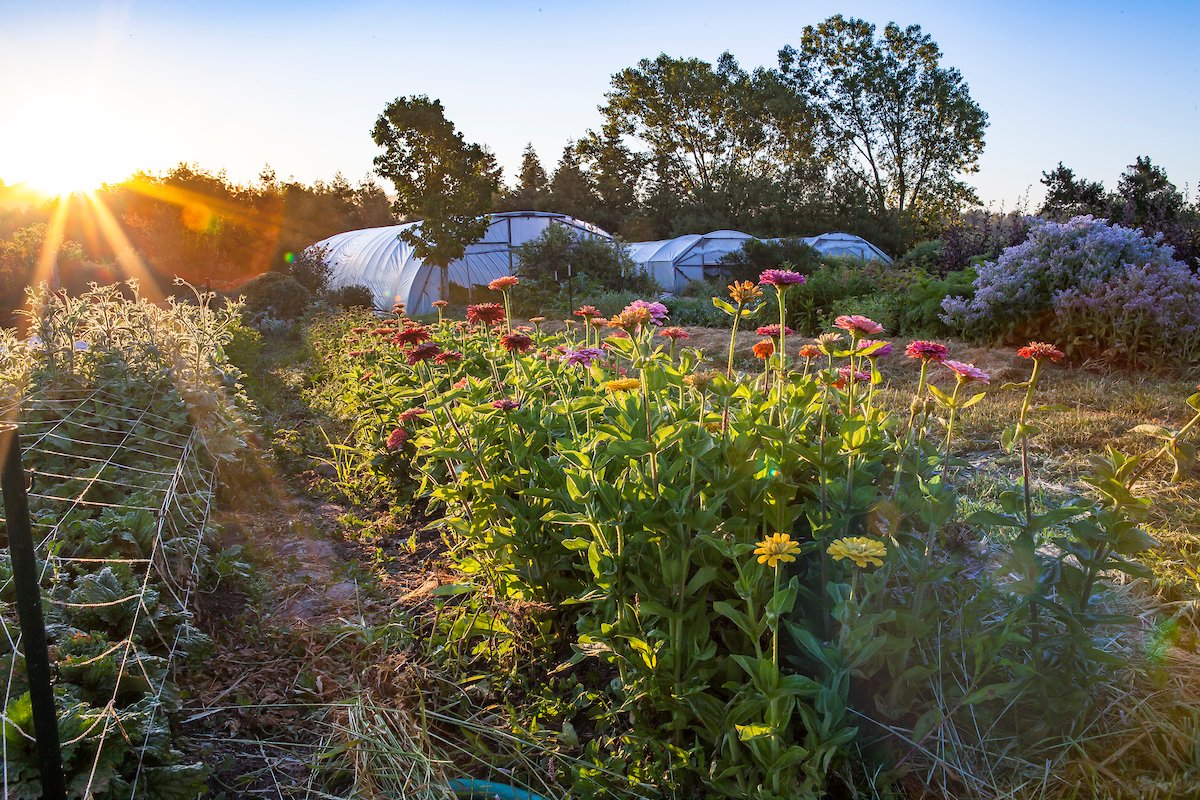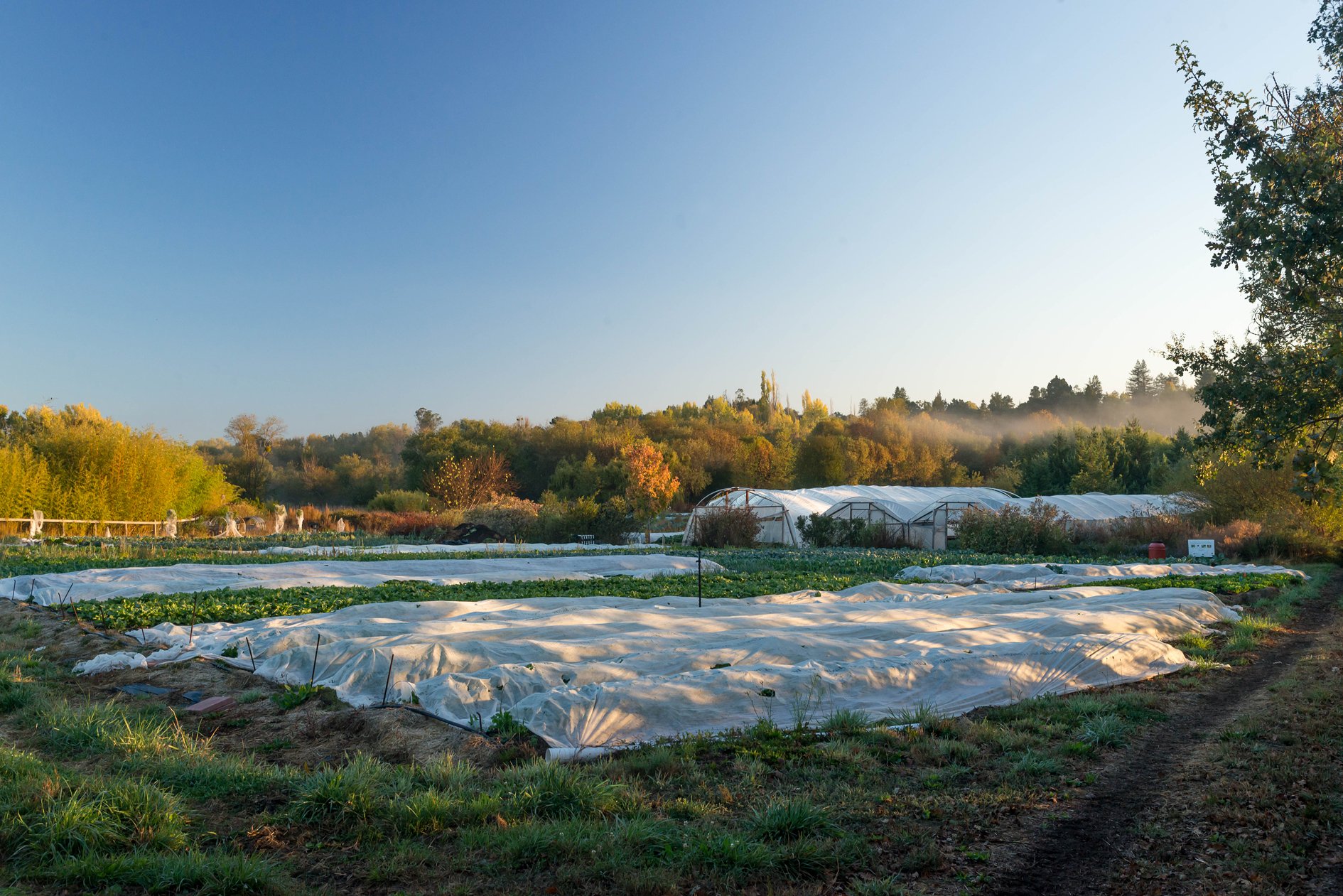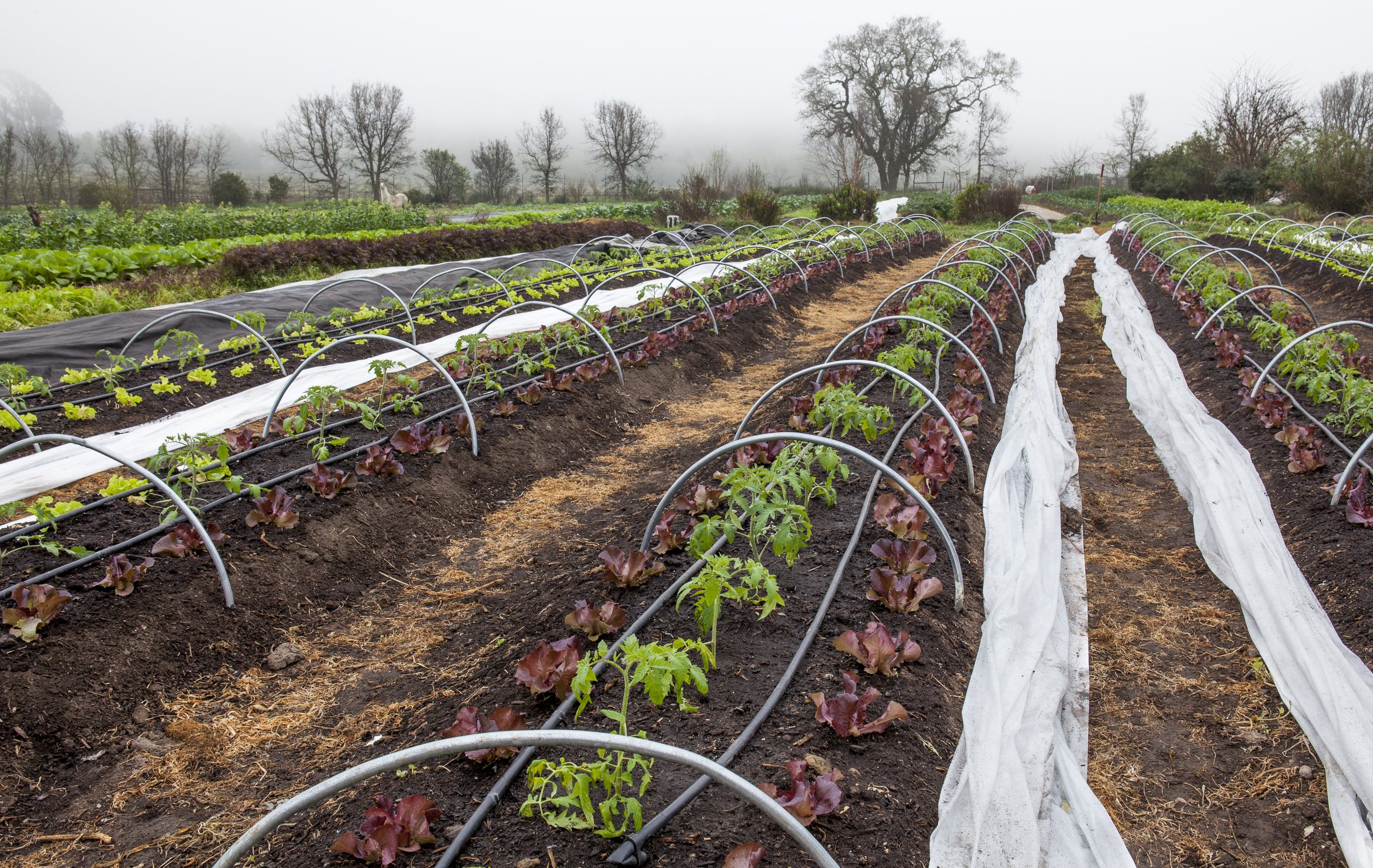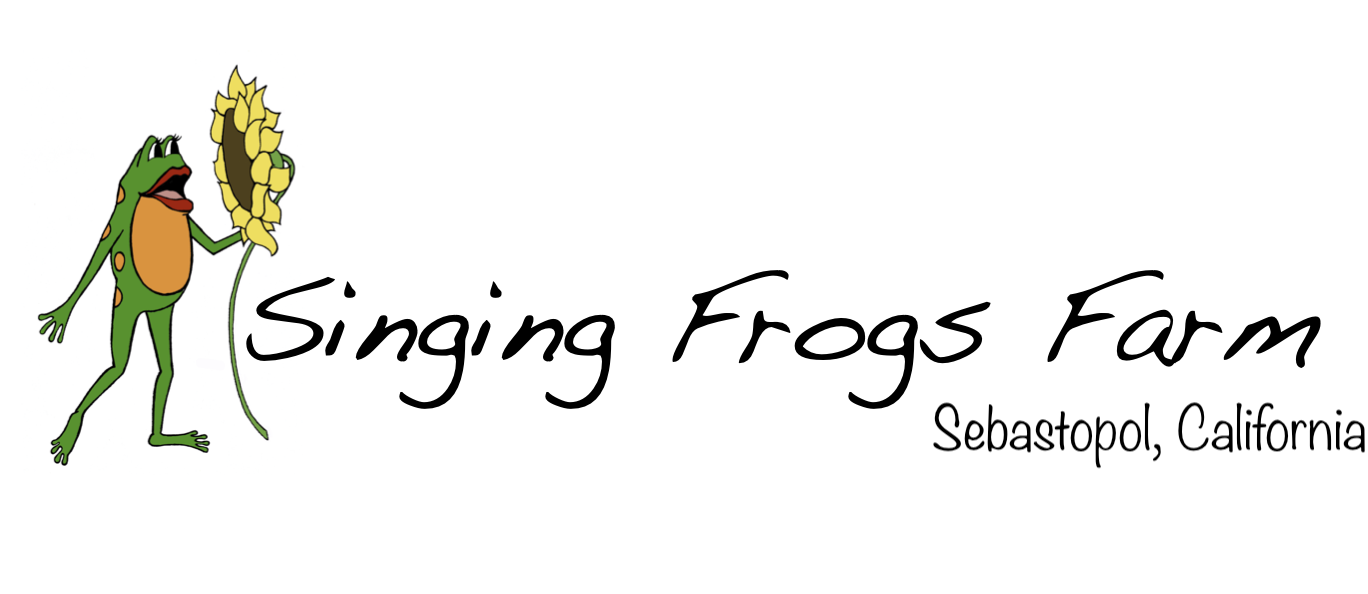
About Singing Frogs Farm
Singing Frogs Farm is a unique, no-till, ecologically beneficial, highly intensive vegetable farm in Sonoma County, California.
Through our innovative, regenerative farming systems, including no-till soil management, we have more than quintupled the organic matter and carbon in our soil (which means more nutrient dense food for you!) - all while producing over six times the state average of harvest revenue per acre per year an while bringing back tremendous, healthy populations of pollinators, beneficial insects and vertebrates (our natural pest control). Not only do we use less water to reduce our vegetables because of our supercharged soil organic matter, we also use NO sprays of any kind, not even organic sprays, and our awesome crew of year-round employees (not seasonal) have job security.
An Innovative & Unique No-Till Vegetable Farm
Tillage is widely known and proven to destroy soil. Plowing and and rototilling destroy the life in soil and deplete soil of vital nutrients by volatilizing those nutrients into the atmosphere creating abundant, potent greenhouse gases.
Our No-Till system of soil management has brought back tremendous health to our soil, raising our soil organic mater (the life in our soil) by over 400% in just 6 years (event the best organic tillage systems have only been able to raise soil organic matter by 25% over 30 years according to Rodale Institute research). Greater soil health means greater crop health and greater nutrient availability for the plants to take up…and for you to eat!
A Dedicated Ecological Farm
Even organic sprays are designed to kill life. The best, safest organic insecticide, herbicides, and fungicides, while better than conventional, fossil fuel based sprays, are still intentionally toxic to life. At Singing Frogs Farm we do NOT use any sprays of any kind. Period. As a result, our children can run through our fields eating whatever they want, whenever they want - something that is not usually possible even on a certified organic farm.
At Singing Frogs Farm we work with Mother Nature to steward an ecological balance so that pests are not a problem. Thousands of perennial plantings, including hedgerows, provide habitat for beneficial insects which travel out to prey on the pest insects. In addition, our focus on building and maintaining healthy soil and soil biology means having a balance of soil-based predators. Most pest insects have part of their life-cycle in the soil and with our robust and vibrant soil biology, the soil predators keep pests under control.
We owe it to our children to leave the world a better place than we found it.
The cherry tree produces a beautiful abundance. It produces tens of thousands of flowers so that it may have a single offspring to carry its genetic material forward. The tens of thousands of blossoms are not an excessive waste of resources in the production of that one offspring, but rather are blessed creations that benefit bees, birds, insects, and composers, not to mention our eyes, noses, and hearts.
Sustainability does not need to result in a spartan, boring lifestyle of zero consumption. Like the cherry tree, living sustainably can mean creating bounty and goodness in our world by enriching our lives so that our children will have more opportunity, more resources, and more fullness to their lives. Our actions, our modes of production, should have beneficial externalities that are “food” for other life systems. This is what we at Singing Frogs Farm believe, and it is this form of sustainability towards which we strive - to leave the world a better place for our children.
The Land & Prior Stewardship Acknowledgement
Singing Frogs Farm is an 8.8 acre property in the Atascadero valley bottom of the Russian River Watershed. The farm is 12 miles due east of the Pacific Ocean and 45 miles north of the Golden Gate Bridge of San Francisco.
For thousands of years, this land was stewarded by the Kashaya Pomo and Coastal Miwok Peoples. We acknowledge that this land was their traditional territory. There are midden piles on the slopes above our property, we have found obsidian shards and hammer stones in our fields, and we protect the native basket grasses used for making water-tight baskets. As farmers and land stewards ourselves, we often consider what this land must have looked like under their stewardship, with elk in this lowland, oaks tended for their acorns and so much more. But we also consider how these people were murdered, enslaved and displaced from this land and it sickens us. Still, the Kashaya Pomo and Coastal Miwok people, communities, languages and cultures persist, and their Graton Rancheria is a federally recognized tribe.




